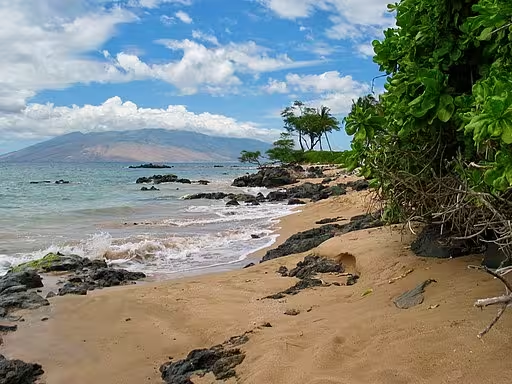To start this post, I will state a consistent truth: in today’s digital landscape, local visibility is paramount. For a small business nestled in the vibrant community of Kihei, Hawaii, this isn’t just a recommendation – it’s a strategic imperative. Kihei, with its unique blend of local residents and a constant influx of tourists seeking authentic experiences, presents a fertile ground for businesses that understand how to harness the power of local Search Engine Optimization (SEO). This comprehensive guide will meticulously detail how a Kihei small business can not only appear at the top of local search results but also cultivate a robust online presence that translates into tangible customer engagement and revenue.
The Kihei Landscape: Understanding Your Local Market

Before we delve into the technicalities of local SEO, it’s crucial to understand the specific dynamics of Kihei. With a population of approximately 22,600 as of 2023, Kihei is a significant hub on Maui. The median age of residents is around 42, and the median household income is roughly $87,568. Key industries include Accommodation & Food Services, Retail Trade, and Health Care & Social Assistance. This demographic and economic data provides a foundational understanding of your potential local customer base.
However, Kihei isn’t just about its residents. Its status as a highly sought-after tourist destination means a significant portion of potential customers are visitors, often searching for services “near me” or specific local experiences. This duality in your target audience—locals seeking everyday needs and tourists looking for immediate gratification—demands a nuanced approach to your local SEO strategy. Businesses must consider what both segments are searching for and how they are searching.
A significant challenge for businesses in Kihei, especially those related to accommodation, has been recent changes in rental regulations and ongoing legal challenges. This highlights the importance of staying agile and adapting your online messaging to reflect the current business environment, ensuring your services are clearly understood and legally compliant.
The Core Pillars of Local SEO for Kihei Businesses

Local SEO isn’t a single tactic; it’s a multifaceted strategy built upon several interconnected pillars. To truly dominate local search results in Kihei, you must meticulously optimize each of these areas.
1. Google Business Profile (GBP) Optimization: Your Digital Storefront
Your Google Business Profile (formerly Google My Business) is arguably the most critical component of your local SEO strategy. It’s your business’s direct representation on Google Search and Maps, often the first point of contact for potential customers.5 For a Kihei business, a fully optimized and actively managed GBP is non-negotiable.
Claim and Verify Your Profile: The very first step is to claim and verify your business profile. If your business isn’t listed, you can add it directly through business.google.com. Verification typically involves a postcard by mail, phone, or email, ensuring you are the legitimate owner. Do not skip this step, as it unlocks the ability to manage and optimize your listing.
Complete All Information Fields: This is where many businesses fall short. Google rewards completeness and accuracy. Ensure every possible field is filled out with precise and up-to-date information:
- Business Name: Use your exact business name. Consistency is key across all online platforms.
- Address: Your physical street address in Kihei, precisely as it appears on your official documents.
- Phone Number: A local Kihei phone number is highly recommended.
- Website: Link to your official business website.
- Hours of Operation: Accurately list your daily and holiday hours. Update immediately if there are any changes.
- Categories: Choose the most accurate and specific categories that describe your business. Google allows multiple categories, so leverage this to capture relevant searches. For example, a “Hawaiian Shirt Shop” might also be categorized as “Apparel Store” or “Souvenir Shop.”
- Service Area: If you serve customers beyond your physical location (e.g., a plumber who travels throughout Kihei and surrounding areas), define your service area.
- Products and Services: Clearly list all products and services you offer. Use rich descriptions and high-quality images. This helps Google understand your offerings and match them to user queries.
- Photos and Videos: High-quality images and videos are incredibly important. Showcase your storefront, interior, products, services in action, and even your team. Businesses with more photos tend to receive more clicks and direction requests. Aim for at least 10-15 high-quality photos. For a Kihei business, consider including images that subtly convey the local ambiance, such as pictures with a glimpse of the ocean or tropical flora.
- Business Description: Craft a compelling and keyword-rich description that highlights what makes your Kihei business unique. Include relevant keywords that potential customers might use when searching for your products or services in Kihei.
Leverage Google Posts: Google Posts allow you to share updates, offers, events, and products directly on your GBP. These posts appear prominently in your knowledge panel and can drive engagement. Use them regularly to announce promotions, new arrivals, special events, or community involvement. For a Kihei business, this could be announcing a live music night, a new Hawaiian dish, or a local charity event you’re sponsoring.
Respond to Reviews: Customer reviews are a powerful ranking signal and a critical trust-builder. Encourage satisfied customers to leave reviews on your GBP. Critically, respond to all reviews, both positive and negative. For positive reviews, express gratitude. For negative reviews, address the issue professionally and offer solutions. This demonstrates excellent customer service and builds credibility with both potential customers and Google. A Kihei-specific touch might be referencing the beautiful weather or a popular local landmark in your response.
Utilize a Q&A Section: The Q&A section on your GBP allows users to ask questions directly about your business. Monitor this section and provide accurate and helpful answers. You can also proactively seed common questions and answers to provide immediate value to prospective customers.
Website Optimization: The Digital Hub of Your Kihei Business
While your GBP is crucial, your website remains your ultimate digital asset. It’s where you control the narrative, showcase your expertise, and ultimately convert visitors into customers. Your website must be optimized for both general SEO principles and specific local nuances.
Mobile-First Design and Speed: Given that a significant portion of “near me” searches occur on mobile devices, a mobile-responsive and fast-loading website is non-negotiable. Google prioritizes mobile-first indexing, meaning it primarily uses the mobile version of your content for ranking. Test your site speed using Google PageSpeed Insights and address any identified issues. Images should be compressed, code minimized, and unnecessary elements removed. For a Kihei business, a slow website will lead to visitors abandoning your page, especially those on vacation with limited data or patience.
On-Page SEO with Local Keywords: Integrate relevant local keywords naturally throughout your website content.
- Homepage: Your homepage should clearly state your business type and location (e.g., “Authentic Hawaiian Plate Lunches in Kihei, Maui”).
- Service/Product Pages: For each service or product, consider creating dedicated pages. On these pages, integrate location-specific keywords (e.g., “Snorkel Gear Rentals Kihei,” “Best Sushi Restaurant South Maui”).
- About Us Page: Detail your connection to Kihei and the local community.
- Contact Page: Ensure your Name, Address, and Phone number (NAP) are prominently displayed and consistent with your GBP. Embed a Google Map of your Kihei location.
- Title Tags and Meta Descriptions: These are critical for click-through rates. Each page should have a unique, keyword-rich title tag (under 60 characters) and a compelling meta description (under 160 characters) that encourage users to click. Include “Kihei” or “Maui” where appropriate.
- Header Tags (H1, H2, H3): Use header tags to structure your content and include keywords naturally. Your H1 tag should typically be your primary keyword for that page.
- Image Optimization: Optimize images with descriptive alt text that includes keywords and location. For example,
alt="Delicious Poke Bowl from our Kihei restaurant".
Local Content Creation: This is where a Kihei business can truly shine. Create content that is highly relevant and valuable to both residents and tourists in Kihei.
- Blog Posts: Write blog posts about local events, attractions, history, or community news that tie back to your business. Examples:
- “Top 5 Family-Friendly Activities in Kihei (and Where to Grab Lunch Afterwards!)”
- “A Local’s Guide to the Best Beaches in South Maui”
- “Supporting Kihei’s Local Artisans: Featuring [Your Business/Product]”
- “The History of Kihei’s [Specific Landmark/Industry] and How it Relates to [Your Business]”
- Kihei-Specific Landing Pages: If your business serves multiple distinct areas within Kihei or nearby towns (e.g., Wailea, Ma’alaea), consider creating dedicated landing pages for each area. Each page should have unique content, NAP information, and relevant keywords.
- Local FAQs: Address common questions specific to Kihei or Maui that relate to your business. For example, a dive shop might have FAQs about the best dive spots in Kihei, water conditions, or local marine life.
- Testimonials and Case Studies: Feature testimonials from Kihei residents or visitors. If applicable, write case studies that highlight how your business solved a problem for a local client.
- “Things to Do in Kihei” / “Kihei Guide” sections: If relevant to your business, create content that helps visitors plan their trip or locals discover new experiences, subtly integrating your offerings.
Schema Markup (Structured Data): Implement schema markup on your website to help search engines better understand your business information. Use LocalBusiness schema to provide details like your business name, address, phone number, hours, reviews, and more. This can enhance your visibility in rich snippets and local search results.
Internal Linking: Strategically link related pages within your website. This helps search engines understand the hierarchy of your content and passes “link juice” between pages. For a Kihei business, link from your “Things to Do” blog post to your service page.
Local Citations and Directories: Building Your Digital Footprint
Local citations are online mentions of your business’s Name, Address, and Phone number (NAP), even without a direct link to your website. Consistency across these citations is critical. Inaccurate or inconsistent NAP information can confuse search engines and harm your local ranking.
Key Local Directories:
- Yelp: A very popular review site, especially for restaurants and service businesses.
- Facebook: Your business Facebook page acts as a citation.
- Yellow Pages/White Pages: Traditional online directories.
- Chamber of Commerce: List your business with the Kihei or Maui Chamber of Commerce. This provides a highly authoritative local citation.
- Industry-Specific Directories: Search for directories specific to your industry (e.g., if you’re a restaurant, list on OpenTable; if you’re a hotel, list on TripAdvisor, Booking.com).
- Data Aggregators: Services like BrightLocal can help you manage and distribute your NAP data across a wide network of directories, ensuring consistency.
NAP Consistency: This point cannot be overstressed. Ensure your business name, address, and phone number are identical across all online platforms. Even minor discrepancies (e.g., “St.” vs. “Street,” or different phone number formats) can negatively impact your local SEO. Develop a consistent NAP format and stick to it.
4. Online Reviews: The Social Proof of Your Kihei Success
Reviews are a powerful ranking factor for local SEO and are immensely influential in consumer decision-making. Positive reviews build trust and credibility, while a lack of reviews or numerous negative ones can deter potential customers.
Actively Solicit Reviews: Don’t wait for reviews to happen organically; proactively ask your satisfied customers for them.
- In-Person: Train your staff to politely ask customers for reviews at the point of sale or service. Provide a simple card with a QR code linking directly to your Google Business Profile review page.
- Email Campaigns: Send follow-up emails after a service or purchase, requesting feedback and providing a direct link to leave a review.
- Website Integration: Add a clear call-to-action on your website encouraging reviews.
- Social Media: Occasionally prompt your followers to leave reviews if they’ve had a positive experience.
Monitor and Respond to Reviews: As mentioned under GBP optimization, responding to reviews is crucial. It shows that you value customer feedback and are engaged with your community. Aim to respond within 24-48 hours. For negative reviews, offer to take the conversation offline to resolve the issue. In Kihei, where community is important, demonstrating responsiveness to feedback is particularly valued.
Diversify Review Platforms: While Google reviews are paramount, encourage reviews on other relevant platforms like Yelp, Facebook, TripAdvisor (if applicable), and industry-specific review sites. This builds a broader and more robust online reputation.
5. Link Building: Earning Authority in the Kihei Digital Sphere
While local SEO often emphasizes NAP and GBP, quality backlinks still play a significant role in establishing domain authority, which indirectly influences local rankings. Links from other reputable websites in and around Kihei signal to Google that your business is trustworthy and important within the local ecosystem.
Local Partnerships and Collaborations:
- Local Businesses: Partner with complementary Kihei businesses for cross-promotions or joint ventures. For example, a surf shop could partner with a local coffee shop. This can lead to reciprocal links.
- Community Organizations: Get involved with local charities, events, or community groups in Kihei. Sponsorships or participation can lead to mentions and links on their websites.
- Local News Outlets/Blogs: If you have newsworthy events, announcements, or unique stories, reach out to local Kihei news websites or influential bloggers. This can result in valuable press mentions and backlinks.
- Supplier/Vendor Links: If you have strong relationships with your suppliers or vendors, see if they have a “partners” or “customers” page where they can link to your website.
Guest Posting: Offer to write guest posts for other local Kihei businesses’ blogs or community websites. Ensure the content is valuable to their audience and includes a natural link back to your site.
Broken Link Building: Identify broken links on relevant Kihei-based websites. Reach out to the website owner, inform them of the broken link, and suggest your relevant content as a replacement.
Content-Driven Link Earning: Create exceptionally valuable and informative content that other Kihei businesses or organizations would naturally want to link to. This could be a comprehensive guide to Kihei attractions, a detailed analysis of a local industry trend, or a unique resource for the community.
6. Mobile Optimization and Voice Search: Adapting to Modern Search Behavior
The prevalence of mobile devices and the rise of voice search are fundamentally changing how people search, especially for local businesses.
Mobile-First Indexing and Responsive Design: As previously mentioned, your website must be mobile-friendly. Ensure it adapts seamlessly to various screen sizes and offers an intuitive user experience on smartphones.
Fast Page Load Times: Mobile users are notoriously impatient. Optimize images, leverage browser caching, and minify code to ensure your Kihei business website loads in seconds.
Voice Search Optimization: Voice search queries are often longer, more conversational, and question-based.
- Natural Language Keywords: Think about how people speak when they search. Instead of “Kihei restaurants,” someone might say, “Hey Google, what are the best casual dining spots in Kihei for dinner tonight?” Integrate these natural language phrases into your content, particularly in FAQs and blog posts.
- Local Modifiers: Voice searches heavily rely on “near me” or specific location modifiers. Ensure your content clearly states your Kihei location.
- Q&A Format: Structure your website content, especially FAQs, to directly answer common questions in a conversational tone.
7. Geo-Targeting and Hyperlocal Strategies: Precision in Kihei
Kihei itself is a community, but within it, there are micro-neighborhoods and landmarks. Leveraging hyperlocal targeting can give you a significant edge.
Location Pages: If your business has multiple locations or serves distinct sub-areas within Kihei, create dedicated landing pages for each. Each page should be optimized with unique content, NAP, and relevant local keywords for that specific micro-location.
Geo-Tagged Photos: When you upload photos to your Google Business Profile, website, or social media, consider geo-tagging them with your Kihei location data. This provides another signal to search engines about your physical presence.
Community-Specific Keywords: Beyond “Kihei,” consider using more granular keywords like “South Kihei restaurants,” “North Kihei yoga studios,” or “Wailea beachfront accommodations.”
Local Events and News Integration: Integrate local Kihei events, news, and community initiatives into your content. This not only provides valuable local context but also helps you rank for related trending local searches.
Advanced Local SEO Strategies for Kihei Businesses

Beyond the core pillars, these advanced tactics can further elevate your Kihei business in local search results.
1. Local Schema Markup (Advanced Implementation)
While we discussed LocalBusiness schema, consider more specific schema types if applicable:
Restaurantschema: For restaurants, includemenu,servesCuisine,priceRange.Productschema: For businesses selling products, includeoffers,aggregateRating.Eventschema: If you host local events, useEventschema.
These specific schema types provide even more granular information to search engines, potentially leading to richer search results and improved visibility.
2. Local Link Building Beyond Directories
Think creatively about local link building opportunities in Kihei:
- Scholarship Programs: If feasible, create a small local scholarship for Kihei students. This can generate links from local schools and educational websites.
- Local Resources Pages: Identify websites (e.g., tourist boards, community centers, local government sites) that have “resources” or “things to do” pages. Reach out and suggest your business as a valuable addition.
- Sponsor Local Sports Teams or Clubs: Sponsorship often comes with a logo and a link on the team’s website.
- Host Local Workshops or Events: Invite local influencers, journalists, or community leaders. This can lead to organic mentions and links.
3. Competitor Analysis in Kihei
Analyze your top local competitors in Kihei.
- Google Business Profile Audit: How complete are their GBPs? What categories do they use? How many reviews do they have, and how do they respond?
- Website Analysis: What keywords are they ranking for? What kind of local content do they publish? What is their website structure like?
- Backlink Profile: Use tools (like Ahrefs or Semrush) to see where your competitors are getting their backlinks from.43 This can reveal new link-building opportunities for your business.
- Review Strategy: How do they manage reviews? Are there any common complaints or praises you can learn from?
Understanding your local competitors’ strategies can help you identify gaps and opportunities to outrank them.
4. User Experience (UX) and Engagement Signals
Google increasingly considers user experience as a ranking factor.
Bounce Rate: If users quickly leave your site, it signals to Google that your content isn’t relevant.
Dwell Time: How long do users spend on your site? Longer dwell times suggest engagement.
- Click-Through Rate (CTR): The percentage of users who click on your listing in search results. Compelling title tags and meta descriptions can improve CTR.
Ensure your website is intuitive, easy to navigate, and provides a positive experience for visitors. For a Kihei business, this might mean clear directions, easy-to-find contact information, and appealing visuals that convey the local charm.
5. Leveraging Social Media for Local Engagement
While social media doesn’t directly impact SEO rankings in the same way as links or GBP, it plays a vital role in local brand awareness, community engagement, and driving traffic to your website and GBP.
- Local Hashtags: Use Kihei-specific hashtags (e.g., #KiheiHI, #MauiLife, #SupportKiheiBusinesses) to increase local visibility.
- Engage with Local Pages: Follow and interact with other Kihei businesses, community groups, and local influencers.
- Share Local Content: Post about local events, offer local tips, and showcase your involvement in the Kihei community.
- Run Local Contests/Promotions: Encourage local residents to participate, boosting engagement and brand awareness.
Measuring Your Local SEO Success in Kihei

Local SEO is an ongoing process. To ensure your efforts are yielding results, you need to track key metrics.
- Google Business Profile Insights: This free tool within your GBP dashboard provides invaluable data on:
- How customers find your business (direct, discovery, branded)
- Where customers view your business on Google (Search or Maps)
- Customer actions (website visits, phone calls, direction requests)
- Photo views and quantity
- Google Analytics: Track website traffic from local searches, user behavior (bounce rate, time on site), and conversions (e.g., contact form submissions, online bookings). Segment your data by geographic location to specifically analyze Kihei traffic.
- Google Search Console: Monitor your website’s search performance, including keywords you’re ranking for, impressions, clicks, and any technical issues.
- Local Rank Tracking Tools: Tools like BrightLocal or Semrush’s local SEO toolkit allow you to track your ranking for specific local keywords in Kihei, providing a competitive overview.
- Review Volume and Sentiment: Regularly monitor the number of reviews you receive and the overall sentiment. Look for trends and areas for improvement.
- Conversion Rates: Ultimately, local SEO aims to drive business. Track how many local searches lead to phone calls, store visits, or online sales.
The Future of Local SEO in Kihei
The local SEO landscape is constantly evolving. Staying ahead of the curve requires adapting to emerging trends.
- Increased Importance of Community Engagement: Google is increasingly valuing businesses that are actively involved in their local communities. Regular Google Posts about local events, collaborations with other Kihei businesses, and genuine participation in community initiatives will become even more crucial.
- AI and Personalized Search: As AI continues to evolve, search results will become even more personalized. Businesses that provide comprehensive, detailed, and relevant information across all online touchpoints will be favored.
- Hyperlocal Targeting: The trend towards highly specific “near me” searches will continue. Businesses will need to optimize for micro-neighborhoods and even specific landmarks within Kihei.
- Rich Media and Visual Search: High-quality images and videos will become even more important for showcasing your business and offerings, especially in visual search results.
- Reputation Management: Detailed, quality reviews with specific feedback will outweigh simple star ratings. Actively encouraging and responding to these detailed reviews will be key.
Conclusion: Your Path to Local Dominance in Kihei

For a small business in Kihei, HI, local SEO is not merely an option; it’s a strategic necessity for sustainable growth. By meticulously optimizing your Google Business Profile, creating locally relevant website content, maintaining consistent citations, actively managing reviews, and building a robust link profile, you can significantly enhance your visibility in local search results. Remember, success in local SEO is a marathon, not a sprint. It requires ongoing effort, consistent monitoring, and a genuine commitment to serving the Kihei community.
Embrace these strategies with a disciplined approach, leveraging data to refine your efforts. The rewards—increased foot traffic, more phone calls, higher online conversions, and a thriving local presence—are well within reach for your Kihei business. Begin today, and watch your business rise to the top of Kihei’s digital landscape.







